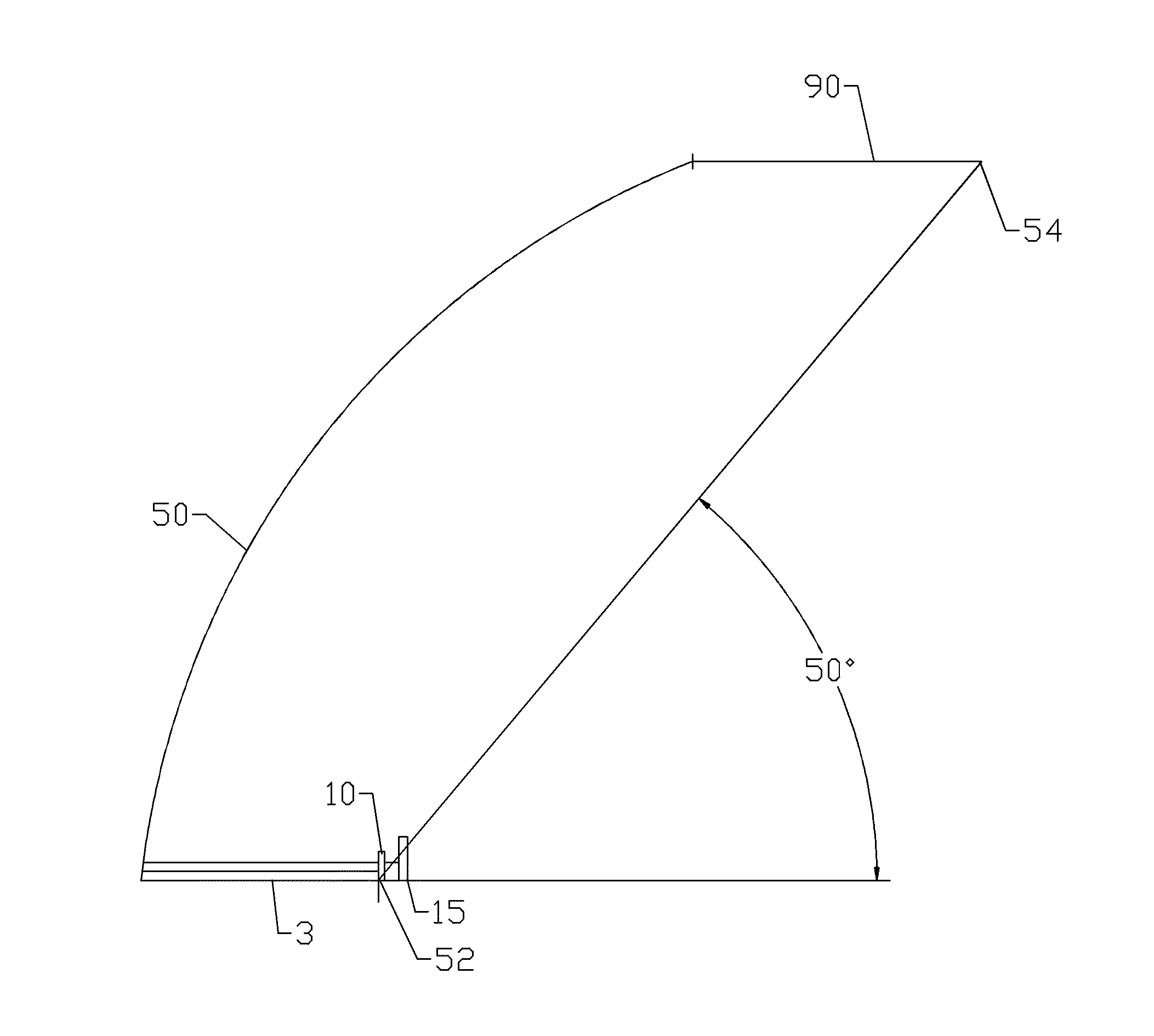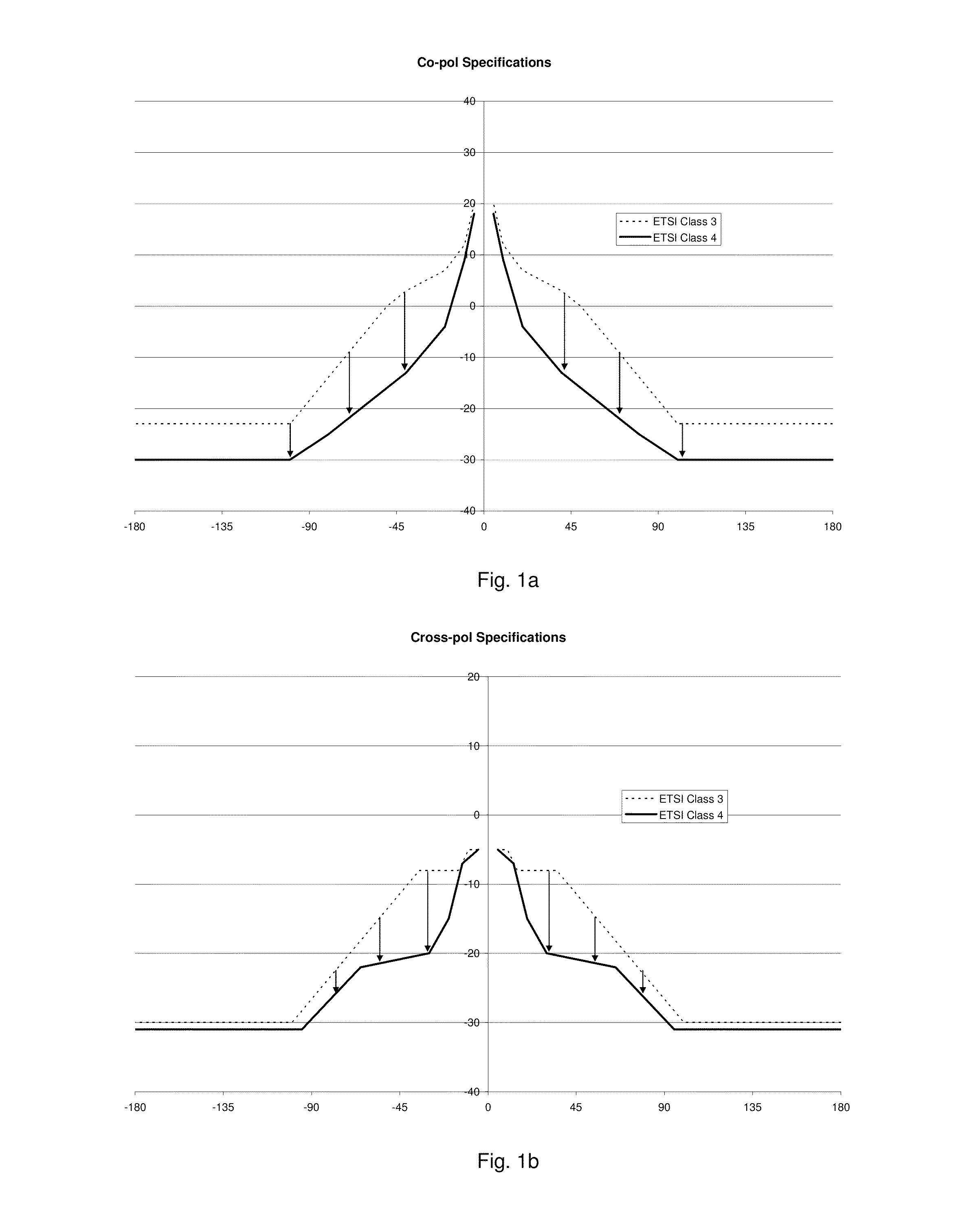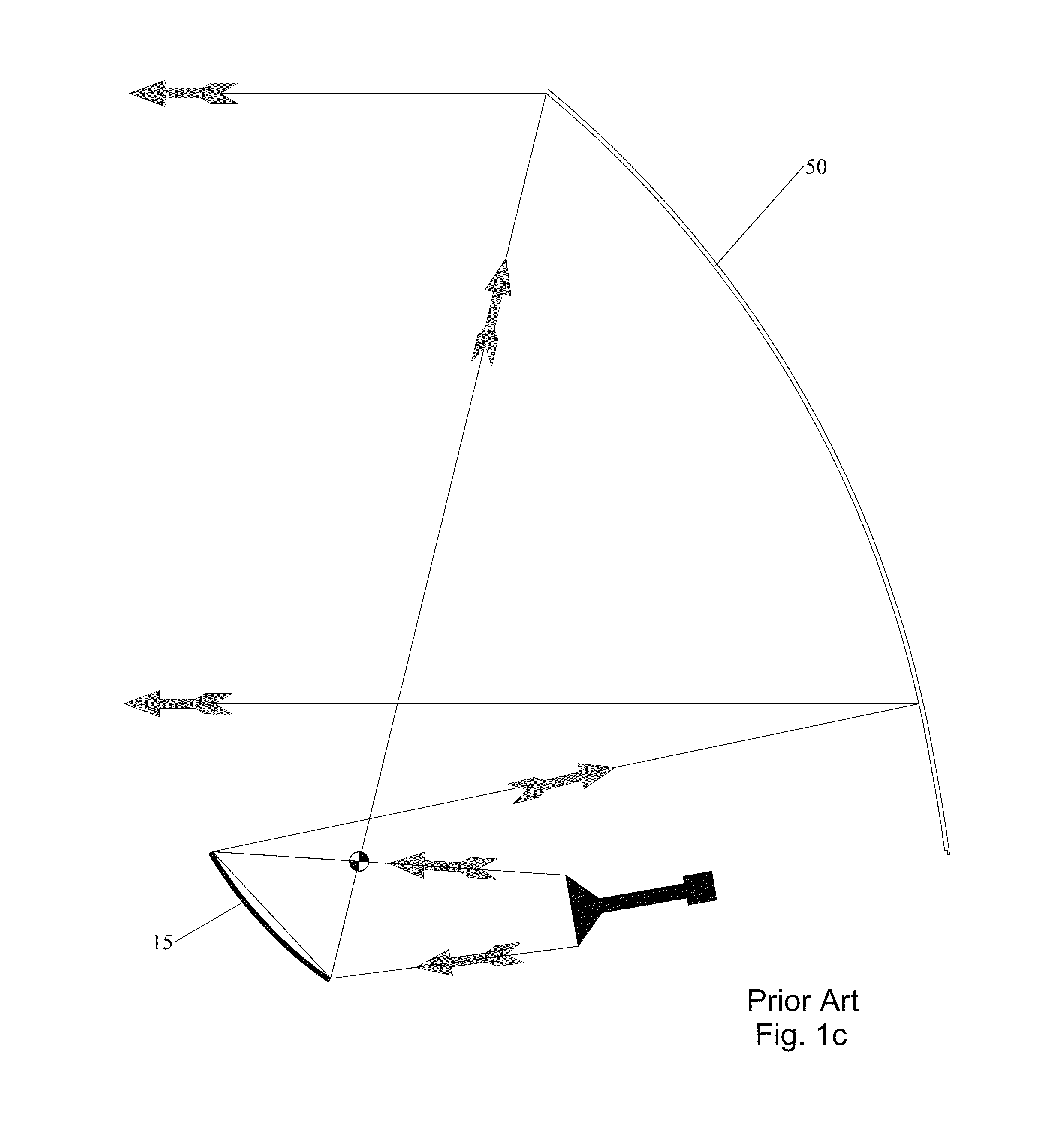Low sidelobe reflector antenna with shield
a reflector antenna and shield technology, applied in the direction of antennas, waveguide horns, radiating element housings, etc., can solve the problems of increasing manufacturing, installation and ongoing maintenance costs, overall size and complexity, and increasing overall manufacturing costs
- Summary
- Abstract
- Description
- Claims
- Application Information
AI Technical Summary
Benefits of technology
Problems solved by technology
Method used
Image
Examples
Embodiment Construction
[0046]The inventors have recognized that improvements in primary radiation pattern control obtained from dielectric cone sub-reflector assemblies dimensioned to concentrate signal energy upon a mid-wall area of reflector dish, paired with improved shielding at the reflector dish periphery, can enable a cost effective self-supported sub-reflector front feed type reflector antenna to meet extremely narrow radiation pattern envelope electrical performance specifications, such as the ETSI Class 4 RPE.
[0047]As shown in FIGS. 2a, 2b and 3, a cone radiator sub-reflector assembly 1 is configured to couple with the end of a feed boom waveguide 3 at a waveguide transition portion 5 of a unitary dielectric block 10 which supports a sub-reflector 15 at the distal end 20. The sub-reflector assembly 1 utilizes an enlarged sub-reflector diameter for reduction of sub-reflector spill-over. The sub-reflector 15 may be dimensioned, for example, with a diameter that is 2.5 wavelengths or more of a desi...
PUM
| Property | Measurement | Unit |
|---|---|---|
| subtended angle | aaaaa | aaaaa |
| subtended angle | aaaaa | aaaaa |
| angle | aaaaa | aaaaa |
Abstract
Description
Claims
Application Information
 Login to View More
Login to View More - R&D
- Intellectual Property
- Life Sciences
- Materials
- Tech Scout
- Unparalleled Data Quality
- Higher Quality Content
- 60% Fewer Hallucinations
Browse by: Latest US Patents, China's latest patents, Technical Efficacy Thesaurus, Application Domain, Technology Topic, Popular Technical Reports.
© 2025 PatSnap. All rights reserved.Legal|Privacy policy|Modern Slavery Act Transparency Statement|Sitemap|About US| Contact US: help@patsnap.com



